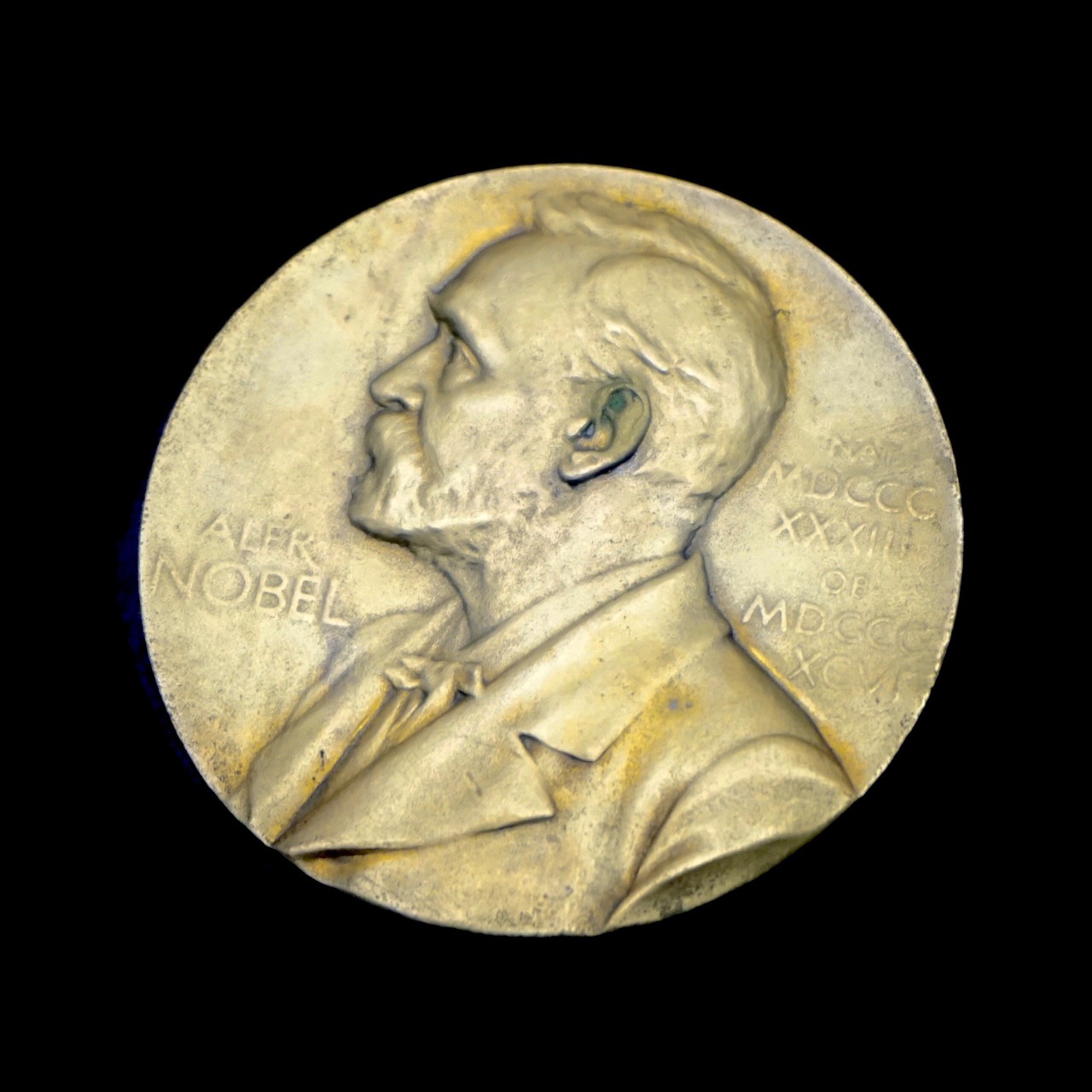The Nobel Prizes were awarded for the first time 117 years ago. Since that time, scientists, researchers, and academicians the world over have come to view the receipt of a Nobel Prize as the achievement of a lifetime, a pinnacle of acknowledgment that has no higher mark. Posthumously, the Nobel Prizes have become the crowning achievement of their creator Alfred Nobel and his life as well, as previously he was best known for his associations in the world of explosives and war munitions.
Who has Conferred the Greatest Benefit Upon Humanity this Year?

Today, the prestigious Nobel Prizes are awarded each year on December 10 to individuals or organizations that have advanced the world in a significant and beneficial way. There are six prize categories: physics, chemistry, economics, physiology or medicine, literature, and peace. Each has a committee that issues nominations and considers the nominees. All awards but the Nobel Peace Prize take place in Stockholm, Sweden. The Peace Prize award takes place in Oslo, Norway. The prizes all come with a gold medal, a diploma, and a significant sum of money intended to further the recipient’s research.
The Life of Alfred Nobel – A Contradiction
Each Nobel Prize medal displays Alfred Nobel’s profile. Just who was Alfred Nobel, and what caused him to leave nearly his entire fortune to establish the Nobel Prizes? Alfred Nobel was a wealthy chemist, writer, businessman, and inventor. He never married, and his female companions were few. He lived simply and traveled much. He was proficient in six languages: Swedish, Russian, French, Italian, German, and English. His penchant for opposites, such as owning more than 90 munitions factories as a self-described pacifist, make him difficult to categorize. Once he described himself by saying “I a misanthrope and yet utterly benevolent….” In some ways, Alfred Nobel was a contradiction to himself.
Alfred Nobel and His Innovation with Explosives
Although Alfred Nobel died holding 355 international patents, the “invention” he is best known for is dynamite. Before dynamite’s invention, the only stable explosive available was gunpowder, which was safe but lacked power. Nitroglycerin, an oily, liquid explosive, offered the blasting power needed by the mining and railroad industries but was unsafe to use because of its volatility. By combining nitroglycerin with silicon-containing diatomaceous earth, Nobel produced a stable explosive, one that was transportable with relative safety. To this, he attached another of his inventions, a detonator with a fuse, which provided the necessary control.
Never Give Up: Alfred Nobel’s Can-Do Attitude
Nobel displayed great tenacity throughout his life even when beset with problems and tragedy. For example, during one point during his experimentation, a shed attached to one of his factories exploded and killed five people, one of whom was his brother Emil. Another trial arose when the Swedish government forbade further experimentation with nitroglycerin within the city limits of Stockholm. Undeterred, Nobel moved his operations to a barge on Lake Mälaren. In addition to his work with explosives, Nobel also owned Bofors, once a primary producer of iron and steel. Under Nobel’s oversite, Bofors became a major manufacturer of war armaments.
Alfred Nobel Reflects on His Life
Many people believe his funding of the Nobel Prizes resulted from a newspaper misprint that occurred when his brother Ludvig died in 1888. Several papers mistook Ludvig for Albert and printed obituaries for Albert. One, published in a French newspaper, announced with apparent glee, “The Merchant of Death is Dead!” The obituary continued, “Dr. Alfred Nobel, who became rich by finding ways to kill more people faster than ever before, died yesterday.” To read his obituary would have been unsettling. To read one worded thus must have given Alfred Nobel genuine food for thought.
The Influence of Bertha von Suttner’s Pacifism on Alfred Nobel
One of Alfred Nobel’s friends was Bertha von Suttner, author of a book published in 1889 entitled Lay Down Your Arms. The two corresponded for decades, and much of her writing was designed to win him over to her pacifist views. Alfred, interested in social issues and appreciative of peace perhaps approached the laying down of arms from a different perspective, one of strength. Once he wrote to von Suttner, “Perhaps my factories will put an end to war sooner than your congresses: on the day that two army corps can mutually annihilate each other in a second, all civilized nations will surely recoil with horror and disband their troops.”
Alfred Nobel and His Appreciation of Literature
One of Alfred Nobel’s great loves was literature, and he actively penned poetry, plays, and letters. At the time of his death, his remaining family attempted to destroy his work, fearing that it might have a negative effect on his reputation. The consensus seems to be that his literary talent wasn’t quite equal to his prowess as a scientist and inventor. Regardless, it is fortunate his love of literature led him to provide an award each year for the laureate who contributed “in the field of literature the most outstanding work in an ideal direction.”
His Final Act: Establishment of the Nobel Prizes

By the time he died in 1896, Alfred Nobel had amassed one of the world’s largest fortunes. He wrote his final will in 1895. When it was read upon his death in 1896, the world was surprised that he desired all but 6% of his fortune to be placed in a fund to honor “those who, during the preceding year, shall have conferred the greatest benefit on mankind.” He instructed the funds to be divided equally between five categories: physics, chemistry, physiology or medicine, literature, and peace. The sixth category, economics, was not added until 1968 and is funded by the bank of Sweden.
Whatever the thoughts that motivated Alfred Nobel to establish the Nobel Prizes, there is little doubt that many individuals and indeed, the entire world, benefit from Nobel’s largess. The Nobel prizes encourage people everywhere to reach for high goals and to seek progress that benefits the whole world. It rewards initiative and helps support independent study and research. In essence, it rewards those who diligently seek in the areas that held Alfred Nobel’s interest throughout his life.
This content (listed above) can be freely copied and used anywhere, by anyone, for any purpose.
This content was freshly written by us, it is not “recycled” but others may grab it and use it, so we strongly recommend that it be re-written to make it 100% unique text, in order to avoid search engine duplicate content penalties.
If you are pressed for time, or your writing skills are a bit rusty, no problem – we can rewrite it for you. Just use your Articlez.com account, place an order for “Elite” content, and in the “notes” area of your order form paste in this original article and ask us to rewrite it (or to write a fresh one on the same subject).





